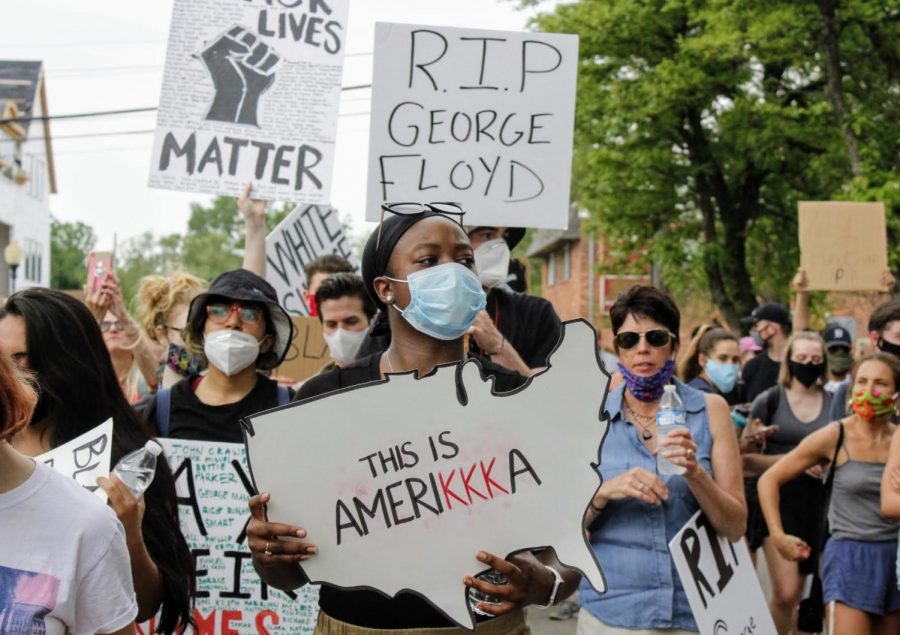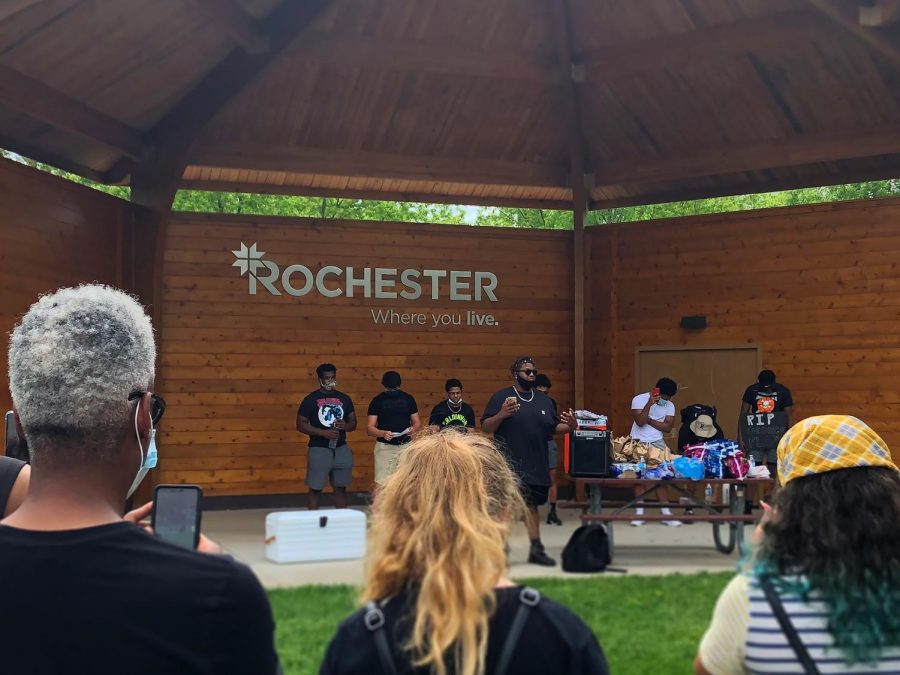Hometown comes together for Black Lives Matter protest
“This is AmeriKKKa” references Childish Gambino’s song about police brutality. Photo by Sophie Hume.
In the heart of Rochester Municipal Park on Thursday, June 4, I kneeled in silence with hundreds of friends, classmates and neighbors for eight minutes and 46 seconds in honor of George Floyd on the day of his memorial service.
The protest in downtown Rochester that followed was unlike anything I have ever seen in this town before. People of all walks of life came together for the Black Lives Matter movement in what has always been a fairly white, affluent town.
Rochester has been my home for 20 years — I was born and raised here, I went to school here and now I attend Oakland University. I know what it’s like to be a non-white member of this community. In all my time here, I have never seen that many people come together for anything in the “Rochester bubble.” Even the annual Christmas parade didn’t have as big a crowd.
The organizer of the protest — Ari Patterson, 21 — is an old classmate of mine from the local high school, Rochester High. He and several others who graduated from the Rochester Community Schools district gathered the crowd in the heart of the city and said a few words before the march began.
“The coronavirus is one of two pandemics this country is facing — America has been plagued with the pandemic of racism since its inception,” Patterson said. “In a country that is supposed to be land of the free, black people have been greatly mistreated for centuries, and this mistreatment persists through this moment.”
In a moment of solidarity, the Rochester police department gave Patterson and the other leaders a megaphone to better project their powerful messages to the crowd. Throughout the peaceful protest, the local police directed traffic and walked alongside the people.
The speeches by Patterson and the other leaders were more powerful for me than most of the things I’ve seen on social media in the last week. These men were my classmates growing up, and hearing them vocalize their emotions and experiences with racism as young black men in my community made it personal.
“I grew up in this community, and I know what it’s like to live in this community as a black man,” Drake Reid said. “I know what it’s like to live in the bubble that is Rochester Hills, and the amount of people that have changed their views and world stances in just the last week by seeing what’s going on — it really gives me hope that we can affect even more lives in the coming weeks.”
Patterson, Reid and the others who spoke promised the march wouldn’t be the end of it, and urged the crowd to stay involved beyond protesting. They promised to reciprocate the commitment the community gave to them by coming out and reminded us that we all stood together.
With Reid’s words — “this is not the endgame … y’all gotta be a part of the solution, not just a part of the fight” — ringing in our ears, we marched through the streets of our town.
Everyone brought signs and screamed the chants “say her name, Breonna Taylor,” “say his name, George Floyd,” “black lives matter” and “no justice, no peace.” Seeing fellow OU students, old childhood friends, PTA moms, kids and the eldery united against injustice in what I’ve always regarded as a relatively sheltered community was moving.
If even my little hometown came together in such a big way, I can’t help but hope for change across the country.














